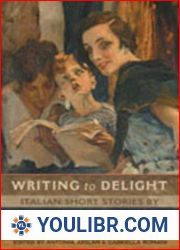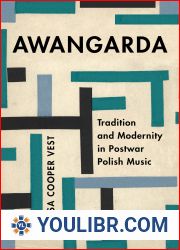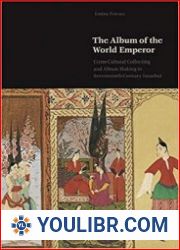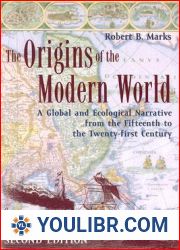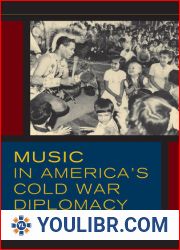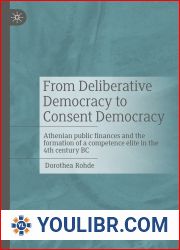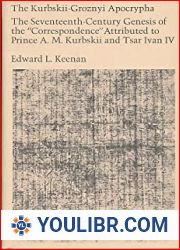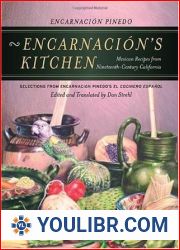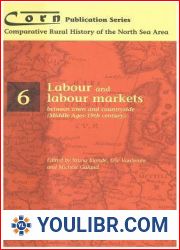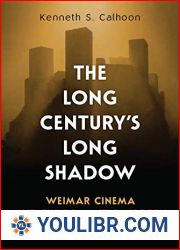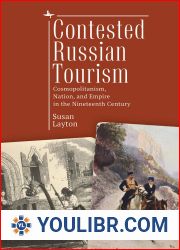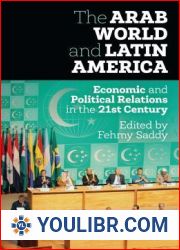
BOOKS - Totalitarianism and Literary Discourse: 20th Century Experience

Totalitarianism and Literary Discourse: 20th Century Experience
Author: Irma Ratiani
Year: January 12, 2011
Format: PDF
File size: PDF 2.8 MB
Language: English

Year: January 12, 2011
Format: PDF
File size: PDF 2.8 MB
Language: English

Totalitarianism and Literary Discourse: A 20th Century Experience In this groundbreaking collection of essays, scholars from across the post-Soviet states and beyond come together to explore the complexities of totalitarianism and its impact on literary discourse in the 20th century. The conference, held in Tbilisi, Georgia in October 2009, aimed to pioneer scholarly inquiry into the political and cultural realities of the Soviet Union and its aftermath, with a particular focus on the challenges facing literature and culture under totalitarian rule. The Soviet experience of totalitarianism is examined in depth, with a focus on the various forms and consequences of ideological dictates that shaped the literary landscape during this period. Decades after the collapse of the Soviet Union, full comprehension of the process of Sovietization has become possible, and this collection offers a nuanced understanding of the reaction of literary discourse to intellectual terror and the systematizing of alternative models offered by anti-Soviet discourse. The collection includes papers that demonstrate the myths and stereotypes of the totalitarian epoch and classify literary genres, providing a wide array of questions for future conferences to explore.
Тоталитаризм и литературный дискурс: опыт 20-го века В этом новаторском сборнике эссе ученые со всего постсоветского пространства и за его пределами собрались вместе, чтобы исследовать сложности тоталитаризма и его влияние на литературный дискурс в 20-м веке. Конференция, состоявшаяся в Тбилиси, Грузия, в октябре 2009 года, была направлена на пионерское научное исследование политических и культурных реалий Советского Союза и его последствий с особым акцентом на проблемы, с которыми сталкивается литература и культура при тоталитарном правлении. Советский опыт тоталитаризма исследуется глубоко, с акцентом на различные формы и последствия идеологического диктата, сформировавшего литературный ландшафт в этот период. Спустя десятилетия после распада Советского Союза стало возможным полное осмысление процесса советизации, и этот сборник предлагает нюансированное понимание реакции литературного дискурса на интеллектуальный террор и систематизацию альтернативных моделей, предлагаемых антисоветским дискурсом. Сборник включает в себя статьи, которые демонстрируют мифы и стереотипы тоталитарной эпохи и классифицируют литературные жанры, предоставляя широкий спектр вопросов для изучения на будущих конференциях.
Totalitarisme et discours littéraire : l'expérience du 20ème siècle Dans ce recueil novateur d'essais, des scientifiques de tout l'espace post-soviétique et au-delà se sont réunis pour explorer les complexités du totalitarisme et son impact sur le discours littéraire du 20ème siècle. La conférence, qui s'est tenue à Tbilissi (Géorgie) en octobre 2009, visait à mener une étude scientifique pionnière sur les réalités politiques et culturelles de l'Union soviétique et ses conséquences, en mettant particulièrement l'accent sur les défis auxquels la littérature et la culture sont confrontées sous un régime totalitaire. L'expérience soviétique du totalitarisme est explorée en profondeur, en mettant l'accent sur les différentes formes et conséquences du diktat idéologique qui a façonné le paysage littéraire pendant cette période. Des décennies après l'effondrement de l'Union soviétique, il est devenu possible de comprendre pleinement le processus de conseil, et ce recueil offre une compréhension nuancée de la réaction du discours littéraire à la terreur intellectuelle et à la systématisation des modèles alternatifs proposés par le discours antisoviétique. recueil comprend des articles qui montrent les mythes et les stéréotypes de l'ère totalitaire et classent les genres littéraires en fournissant un large éventail de questions à explorer lors de conférences futures.
Totalitarismo y discurso literario: la experiencia del siglo XX En esta innovadora colección de ensayos, estudiosos de todo el espacio postsoviético y más allá se reunieron para explorar las complejidades del totalitarismo y su influencia en el discurso literario en el siglo XX. La Conferencia, celebrada en Tbilisi (Georgia) en octubre de 2009, tenía por objeto realizar un estudio científico pionero de las realidades políticas y culturales de la Unión Soviética y sus consecuencias, haciendo especial hincapié en los problemas que afrontaban la literatura y la cultura bajo un gobierno totalitario. La experiencia soviética del totalitarismo se explora profundamente, con énfasis en las diferentes formas y consecuencias del dictado ideológico que formó el panorama literario durante este período. Décadas después del colapso de la Unión Soviética, es posible una completa reflexión sobre el proceso de sovietización, y esta colección ofrece una comprensión matizada de la respuesta del discurso literario al terror intelectual y una sistematización de los modelos alternativos que ofrece el discurso antisoviético. La colección incluye artículos que muestran mitos y estereotipos de la época totalitaria y clasifican los géneros literarios, proporcionando una amplia gama de preguntas para explorar en futuras conferencias.
Il totalitarismo e il discorso letterario: l'esperienza del ventesimo secolo In questa raccolta innovativa di saggi, scienziati provenienti e fuori dallo spazio post sovietico si sono riuniti per esplorare le complessità del totalitarismo e la sua influenza sul discorso letterario nel ventesimo secolo. La conferenza, che si è tenuta a Tbilisi, in Georgia, nell'ottobre 2009, è stata incentrata su uno studio scientifico pionieristico sulle realtà politiche e culturali dell'Unione Sovietica e sulle sue conseguenze, con particolare riferimento ai problemi che la letteratura e la cultura affrontano durante il governo totalitario. L'esperienza sovietica del totalitarismo viene esplorata in profondità, puntando sulle varie forme e conseguenze del diktat ideologico che ha creato il panorama letterario in questo periodo. Decenni dopo la disintegrazione dell'Unione Sovietica, è stato possibile comprendere pienamente il processo di sovietizzazione, e questa raccolta offre una comprensione sfumata della risposta letteraria al terrore intellettuale e alla sistematizzazione di modelli alternativi proposti dal discorso antisismico. La raccolta comprende articoli che mostrano i miti e gli stereotipi dell'epoca totalitaria e classificano i generi letterari fornendo una vasta gamma di questioni da esaminare in future conferenze.
Totalitarismus und literarischer Diskurs: Erfahrungen des 20. Jahrhunderts In dieser bahnbrechenden Essaysammlung sind Wissenschaftler aus dem gesamten postsowjetischen Raum und darüber hinaus zusammengekommen, um die Komplexität des Totalitarismus und seine Auswirkungen auf den literarischen Diskurs im 20. Jahrhundert zu untersuchen. Die Konferenz, die im Oktober 2009 in Tiflis, Georgien, stattfand, zielte auf eine bahnbrechende wissenschaftliche Untersuchung der politischen und kulturellen Realitäten der Sowjetunion und ihrer Auswirkungen ab, mit besonderem Schwerpunkt auf den Herausforderungen, denen sich Literatur und Kultur unter totalitärer Herrschaft gegenübersehen. Die sowjetische Erfahrung des Totalitarismus wird eingehend untersucht, wobei der Schwerpunkt auf den verschiedenen Formen und Folgen des ideologischen Diktats liegt, das die Literaturlandschaft in dieser Zeit prägte. Jahrzehnte nach dem Zusammenbruch der Sowjetunion wurde es möglich, den Prozess der Sowjetisierung vollständig zu verstehen, und diese Sammlung bietet einen differenzierten Einblick in die Reaktion des literarischen Diskurses auf den intellektuellen Terror und die Systematisierung alternativer Modelle, die der antisowjetische Diskurs bietet. Die Sammlung umfasst Artikel, die die Mythen und Stereotypen der totalitären Ära zeigen und literarische Genres klassifizieren und eine breite Palette von Fragen für zukünftige Konferenzen zur Verfügung stellen.
''
Totalitarizm ve Edebi Söylem: 20. Yüzyıl Deneyimi Bu çığır açan makale koleksiyonunda, Sovyet sonrası alanın ve ötesinden gelen akademisyenler, totalitarizmin karmaşıklıklarını ve 20. yüzyılda edebi söylem üzerindeki etkisini araştırmak için bir araya geldi. Ekim 2009'da Gürcistan'ın Tiflis kentinde düzenlenen konferans, Sovyetler Birliği'nin siyasi ve kültürel gerçeklerinin ve sonuçlarının bilimsel bir incelemesine öncülük etmeyi ve özellikle totaliter yönetim altında edebiyat ve kültürün karşılaştığı sorunlara vurgu yapmayı amaçlıyordu. Totalitarizmin Sovyet deneyimi, bu dönemde edebi manzarayı şekillendiren ideolojik diktanın çeşitli biçimlerine ve sonuçlarına vurgu yaparak derinlemesine incelenmiştir. Sovyetler Birliği'nin çöküşünden on yıllar sonra, Sovyetleşme sürecinin tam olarak anlaşılması mümkün hale geldi ve bu koleksiyon, edebi söylemin entelektüel teröre tepkisi ve Sovyet karşıtı söylemin sunduğu alternatif modellerin sistematikleştirilmesi hakkında nüanslı bir anlayış sunuyor. Koleksiyon, totaliter dönemin mitlerini ve klişelerini gösteren ve edebi türleri sınıflandıran ve gelecekteki konferansların araştırılması için çok çeşitli konular sunan makaleler içermektedir.
الشمولية والخطاب الأدبي: تجربة القرن العشرين في هذه المجموعة الرائدة من المقالات، اجتمع علماء من جميع أنحاء الفضاء ما بعد الاتحاد السوفيتي وما بعده لاستكشاف تعقيدات الشمولية وتأثيرها على الخطاب الأدبي في القرن العشرين. وكان الهدف من المؤتمر، الذي عقد في تبليسي، جورجيا، في تشرين الأول/أكتوبر 2009، هو القيام بدور رائد في إجراء دراسة علمية للواقع السياسي والثقافي للاتحاد السوفياتي ونتائجه، مع التركيز بوجه خاص على المشاكل التي يواجهها الأدب والثقافة في ظل الحكم الشمولي. يتم استكشاف التجربة السوفيتية للشمولية بعمق، مع التركيز على الأشكال والعواقب المختلفة للإملاءات الأيديولوجية التي شكلت المشهد الأدبي خلال هذه الفترة. بعد عقود من انهيار الاتحاد السوفيتي، أصبح الفهم الكامل لعملية السوفييت ممكنًا، وتقدم هذه المجموعة فهمًا دقيقًا لرد فعل الخطاب الأدبي على الإرهاب الفكري وتنظيم النماذج البديلة التي يقدمها الخطاب المعادي للسوفييت. تتضمن المجموعة مقالات توضح الأساطير والقوالب النمطية للعصر الشمولي وتصنف الأنواع الأدبية، وتوفر مجموعة واسعة من القضايا للمؤتمرات المستقبلية لاستكشافها.







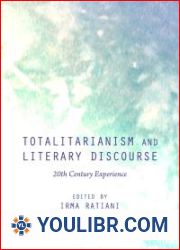
 49
49  3 TON
3 TON



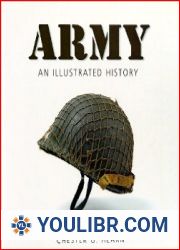
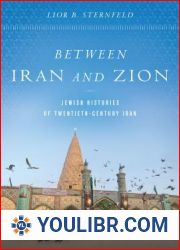
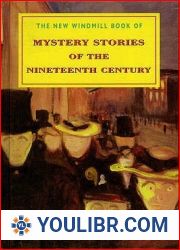






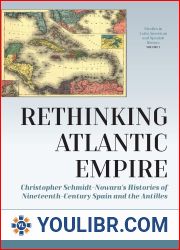


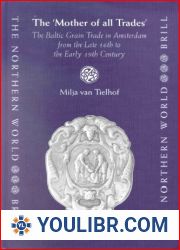
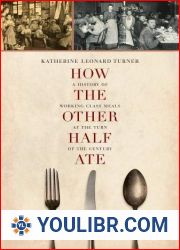
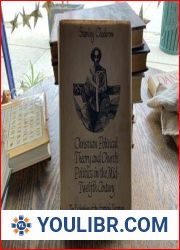
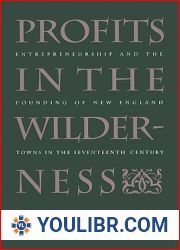
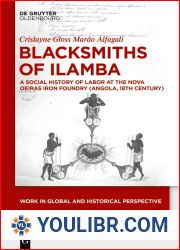
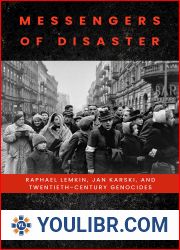

![Rare ASIA IN THE MAKING OF EUROPE Volume I The Century of Discovery Book One [ and ] Book Two [Hardcover] LACH Donald F. Rare ASIA IN THE MAKING OF EUROPE Volume I The Century of Discovery Book One [ and ] Book Two [Hardcover] LACH Donald F.](https://youlibr.com/img/5/507355_oc.jpg)

